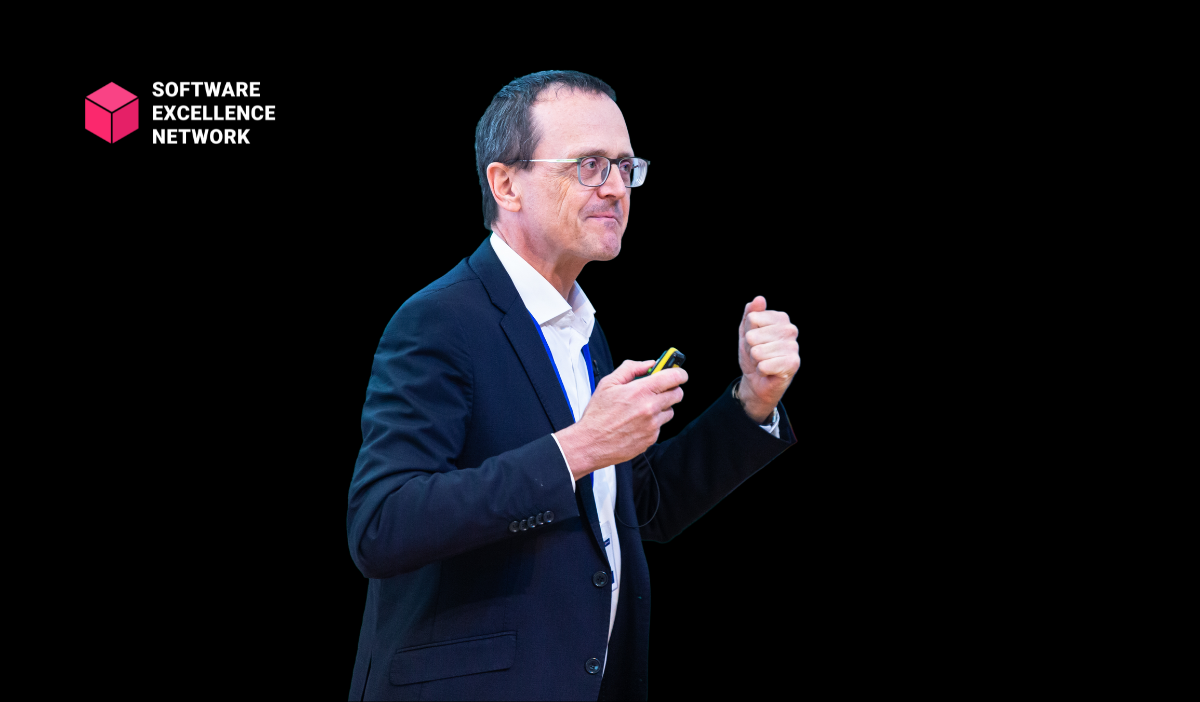
At a recent Sustainability & IT event, Prof. Dr. Hermann Sikora delivered an insightful presentation exploring the intersection of sustainability and software development. His message was clear: as digitalization accelerates across industries, it brings with it a hidden but growing energy cost that cannot be ignored. He urged the IT sector—and particularly the automotive software community—to rethink their approaches to engineering in favor of energy-conscious practices.

Digital technology has become a cornerstone of modern life, from streaming services and cloud computing to smart appliances and connected vehicles. However, Prof. Sikora presented a sobering analysis of the escalating energy footprint these technologies are leaving behind. He cited research showing that global IT systems—including data centers, networking equipment, and user devices—already consume close to 10% of the world’s electricity supply, and this figure is projected to increase dramatically as more industries adopt cloud-based and edge computing solutions.
In the automotive sector, the move toward software-defined vehicles (SDVs) has further accelerated the need for energy-efficient software design. As vehicles become rolling data centers, inefficient software could compromise not only energy consumption but also the range and performance of electric vehicles (EVs).
While much focus is placed on hardware innovations for better batteries and more efficient engines, we must not forget that software efficiency can be just as impactful in reducing energy use and enhancing sustainability.
Prof. Sikora took the audience on a brief retrospective journey, comparing the early days of computing with today’s software development landscape. In the early decades of computing, constraints on memory, processing power, and storage required developers to write highly optimized code. Programmers painstakingly designed algorithms to use the fewest possible instructions, conserving every byte of memory and every cycle of the processor.
However, in the modern era of seemingly limitless computational power, rapid deployment cycles and the continuous delivery of new features often come at the cost of efficiency. Prof. Sikora lamented the fact that resource efficiency is no longer a primary consideration for many software teams. “It’s as though we forgot the hard-won lessons of optimization in the rush to push software faster to market,” he observed.
He stressed that the industry must revive these forgotten practices, not out of nostalgia, but as a pragmatic response to the growing energy demands of digital ecosystems.
Prof. Sikora outlined a comprehensive framework for integrating sustainability into software engineering:
Algorithmic Optimization
He described how even modest improvements in algorithmic efficiency can lead to exponential reductions in power consumption when applied at scale. For example, more efficient sorting algorithms in cloud services can reduce the electricity needed by vast server farms.
Lean Software Design
Prof. Sikora urged developers to embrace minimalist design principles, emphasizing modularity and the removal of redundant features that bloat applications. In automotive systems, lean software could lead to faster, more responsive applications that require less computational overhead.
Energy Metrics in Development Tools
He advocated for integrating energy consumption analytics into software development pipelines, allowing engineers to monitor and optimize the power usage of their code in real-time. Tools that visualize energy usage per line of code or per function could help developers make trade-offs between performance and power efficiency.
Collaborative Green Software Standards
Prof. Sikora called for industry-wide cooperation to establish green coding guidelines and standards, enabling developers to share best practices for energy-aware design. This, he argued, should be a collaborative effort involving technology companies, automotive manufacturers, and academic researchers.
Automotive software presents a unique challenge—and opportunity—for sustainable software engineering. Vehicles are resource-constrained environments where every watt matters, particularly for electric vehicles where energy efficiency directly affects range. Prof. Sikora discussed several real-world examples:
Prof. Sikora concluded by emphasizing that sustainable software engineering is not just about tools and techniques—it requires a fundamental cultural shift within organizations. Developers, product managers, and executives must adopt a mindset where sustainability is as important as functionality and speed-to-market.
He called on the audience to rethink software development as a holistic process that considers ecological impact alongside technical and business goals. The future will be shaped by those who recognize that software is not an abstract product—it has a tangible impact on our planet’s resources.
The Software Excellence Network is a global community dedicated to advancing the craft of software engineering through collaboration, innovation, and knowledge sharing. It connects thought leaders, practitioners, and decision-makers from industries including automotive, finance, and technology to drive excellence in large-scale software development. Members gain access to exclusive insights, masterclasses, and best practices that empower them to tackle the evolving challenges of modern software production. Join our mission!
This article provides a high-level summary of key points from Prof. Dr. Hermann Sikora’s presentation on sustainable software engineering and energy efficiency. For a deeper understanding and detailed strategies discussed, we highly recommend watching the full masterclass below, where Prof. Sikora elaborates on his insights with real-world examples and actionable guidance.
These Stories on Events/Webinars
August-Bebel-Str. 26-53
14482 Potsdam, Germany
hello@seerene.com
+49 (0) 331 706 234 0
Generative AI Seerene GmbH
August-Bebel-Str. 26-53
14482 Potsdam, Germany
hello@seerene.com
+49 331 7062340